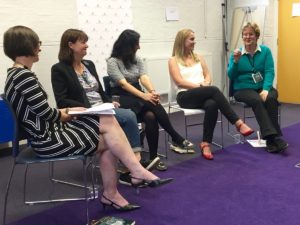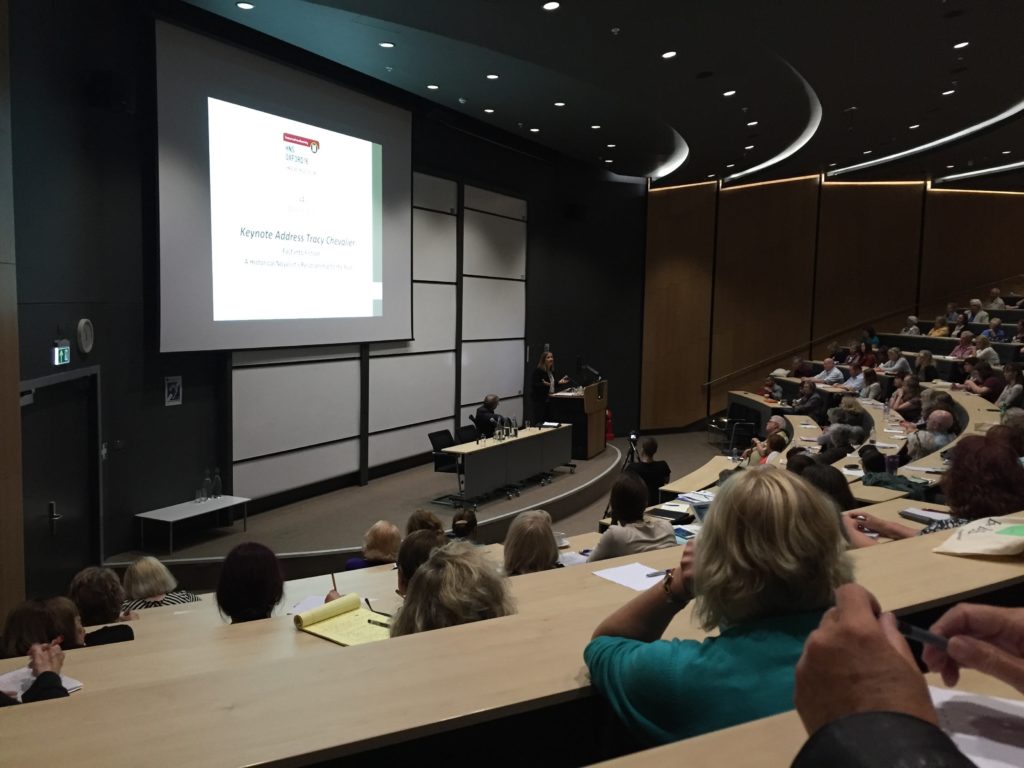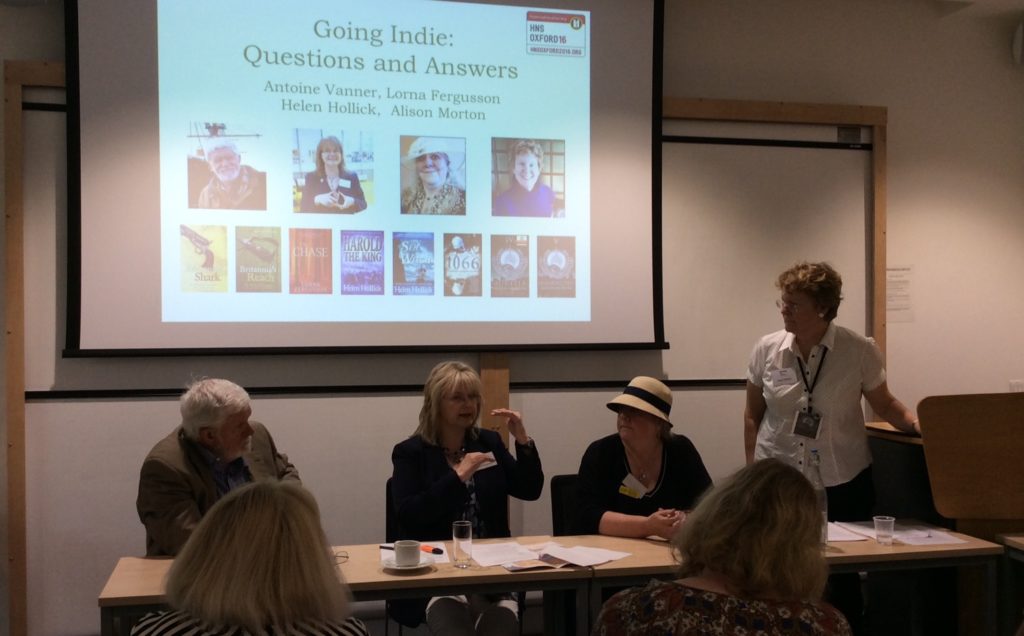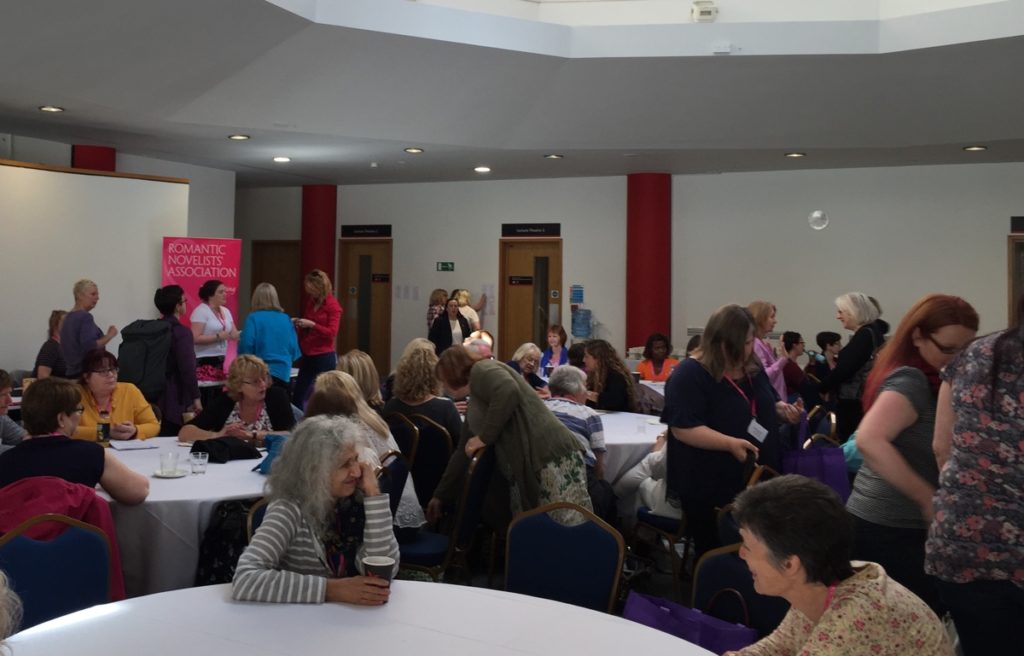 Speaking at conferences is one thing – you know what your defined role is, whether giving a talk, being a panel member or running a workshop. You are on the inside track, you prepare materials, you mix with attendees, carrying on discussions from your talks. You are giving back.
Speaking at conferences is one thing – you know what your defined role is, whether giving a talk, being a panel member or running a workshop. You are on the inside track, you prepare materials, you mix with attendees, carrying on discussions from your talks. You are giving back.
Attending a conference as a delegate is different. If you’re not speaking, why are you there?
- Education – You’re learning new skills, honing existing ones and remembering ones you haven’t used for some time.
- Networking – Wherever you are in your writing journey, you need to make contacts (authors in your genre, agents and publishers, people who have inspired you), find new providers of services and meet virtual friends in the flesh.
- Being counted – Most writers’ conferences are run by genre associations and societies, professional groups, interest groups, local litfests, etc. This is the time to show your support for them, to be there at the major annual/biennial event.
- Discovering what’s trending, what’s new, how to prepare for and take advantage of future developments.
- Fun – Shut up in your writing garret, your writing shed or the spare bedroom, you are alone. Going to a conference means you socialise with real people who ‘get’ writing.
How get the best out of a conference
Preparation
- Select the right one – Is it relevant to you at this time? With travel, accommodation and meals, conference going can represent a significant expense. Be hardheaded about whether you’re going to gain something that will benefit your writing/writing life, not just be an agreeable trip to see your mates.
- Be informed – Check the information sent to you, find the organisation’s conference website/Facebook page/Twitter handle and check for updates and release of new essential information
- Prioritise – Mark up the talks/panels/workshops which you judge ‘essential’, ‘very helpful’ and ‘would be nice’. Also note the sessions you may want to miss. Many genre specific events arrange one-to-one mini interviews with an agent, publisher or book doctor who will assess a sample of your writing (sent in advance). Appointments are fixed weeks or even months before the event and snapped up incredibly fast. Check the exact details on how to bag one of these as soon as you can, and apply immediately.
- People – If you receive an advance attendance list (You don’t always get one.), mark up the people you already know and the attendees you’d like to meet. Getting to know others can be a delightful surprise!
- Practicalities – Don’t take too many clothes – check the event details – but one complete change is sensible. Accidents do happen! Take extra teabags, coffee, wine and a mug/glass. Some events give away a goody bag in which you can cart your papers and book purchases around, but slip an extra cloth bag or small carrier in your case as a precaution. Talk ahead of time to others who have been to the previous year’s event.
At the event
- Timing – Turn up on time. It’s better to arrive on the afternoon before the conference so you can get settled into the accommodation without rushing and be ready for some early networking. Sometimes a pre-conference drink or meal is where important contacts are made. And when the conference proper starts, getting to each of your chosen sessions promptly means you get a good seat!
- Speakers should let you know whether they will answer questions as they go along or prefer to take them at the end of their talk. If you wish to ask them a question at the end, wait politely as each person has their turn. Sometimes you and the speaker have to leave the room as the next session may be starting. If they’re not going straight to another talk, they may be happy to talk over a cup of tea now or glass of wine later. Keen as you are to chat to them, don’t hassle or hog the speaker. 😉
- Ask questions – Many people are nervous about this, but you can be sure that if you stand up and ask, others will be grateful you did.
- Keep your ears open for informal arrangements – drinks, readings, meals, side discussions, parties, etc.
- Bookshop bargains – Books are sometimes discounted at events, plus it’s more than likely that the author will sign them for you.
- Make notes, pick up any handouts on offer, jot down websites and exchange business cards. In all the buzz from the event, you won’t remember everything…
What have I missed out There’s bound to be something you can add!
Alison Morton is the author of Roma Nova thrillers – INCEPTIO, PERFIDITAS, SUCCESSIO, AURELIA, INSURRECTIO and RETALIO. CARINA, a novella, and ROMA NOVA EXTRA, a collection of short stories, are now available. Audiobooks are available for four of the series. NEXUS, an Aurelia Mitela novella, will be out on 12 September 2019.
Find out more about Roma Nova, its origins, stories and heroines… Download ‘Welcome to Roma Nova’, a FREE eBook, as a thank you gift when you sign up to Alison’s monthly email newsletter. You’ll also be first to know about Roma Nova news and book progress before everybody else, and take part in giveaways.
















Leave a Reply